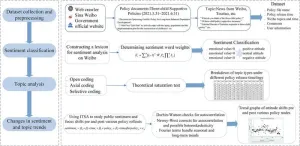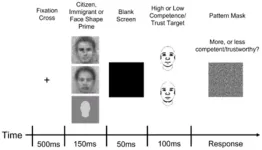(Press-News.org) MINNEAPOLIS – People with high levels of body fat stored in their belly or arms may be more likely to develop diseases like Alzheimer’s and Parkinson’s than people with low levels of fat in these areas, according to a study published in the July 24, 2024, online issue of Neurology®, the medical journal of the American Academy of Neurology. The study also found that people with a high level of muscle strength were less likely to develop these diseases than people with low muscle strength.
“These neurodegenerative diseases like Alzheimer’s and Parkinson’s affect over 60 million people worldwide, and that number is expected to grow as the population ages, so it’s crucial that we identify ways to modify risk factors to develop some preventive tools,” said study author Huan Song, MD, PhD, of Sichuan University in Chengdu, China. “This study highlights the potential to lessen people’s risk of developing these diseases by improving their body composition. Targeted interventions to reduce trunk and arm fat while promoting healthy muscle development may be more effective for protection against these diseases than general weight control.”
The study involved 412,691 people with an average age of 56 who were followed for an average of nine years. At the beginning of the study, measurements were taken for body composition, such as waist and hip measurements, grip strength, bone density and fat and lean mass.
During the study, 8,224 people developed neurodegenerative diseases—mainly Alzheimer’s disease, other forms of dementia, and Parkinson’s disease.
Male participants with high levels of body fat in their bellies developed the neurodegenerative diseases at a rate of 3.38 per 1,000 person-years, compared to 1.82 cases per 1,000 person-years for those with low levels of body fat in their bellies. For female participants, the rates were 2.55 for high levels and 1.39 for low levels. Person-years represent both the number of people in the study and the amount of time each person spends in the study.
After adjusting for other factors that could affect the rate of disease, such as high blood pressure, smoking and drinking status and diabetes, researchers found that overall people with high levels of belly fat were 13% more likely to develop these diseases than people with low levels of belly fat.
People with high levels of arm fat were 18% more likely to develop the diseases than those with low levels of arm fat.
Those with high muscle strength were 26% less likely to develop the diseases than those with low levels of strength.
The relationship between these body compositions and the neurodegenerative diseases was partly explained by the occurrence after the start of the study of cardiovascular diseases such as heart disease and stroke.
“This underscores the importance of managing these cardiovascular diseases right away to help prevent or delay the development of Alzheimer’s, Parkinson’s, or other degenerative diseases,” Song said.
A limitation of the study is that participants were mainly white people from the United Kingdom of Great Britain and Northern Ireland, so the results may not apply to other populations.
The study was supported by Sichuan University, Sichuan Provincial Science and Technology Department and the Swedish Research Council.
Learn more about neurologic disorders at BrainandLife.org, home of the American Academy of Neurology’s free patient and caregiver magazine focused on the intersection of neurologic disease and brain health. Follow Brain & Life® on Facebook, X and Instagram.
When posting to social media channels about this research, we encourage you to use the hashtags #Neurology and #AANscience.
The American Academy of Neurology is the world's largest association of neurologists and neuroscience professionals, with over 40,000 members. The AAN’s mission is to enhance member career fulfillment and promote brain health for all. A neurologist is a doctor with specialized training in diagnosing, treating and managing disorders of the brain and nervous system such as Alzheimer's disease, stroke, concussion, epilepsy, Parkinson's disease, multiple sclerosis, headache and migraine.
For more information about the American Academy of Neurology, visit AAN.com or find us on Facebook, X, Instagram, LinkedIn and YouTube.
END
Does your body composition affect your risk of dementia or Parkinson’s?
2024-07-24
ELSE PRESS RELEASES FROM THIS DATE:
Researchers discover faster, more energy-efficient way to manufacture an industrially important chemical
2024-07-24
Polypropylene is a common type of plastic found in many essential products used today, such as food containers and medical devices. Because polypropylene is so popular, demand is surging for a chemical used to make it. That chemical, propylene, can be produced from propane. Propane is a natural gas commonly used in barbeque grills.
Scientists from the U.S. Department of Energy’s (DOE) Argonne National Laboratory and Ames National Laboratory report a faster, more energy-efficient way to manufacture propylene than the process currently used.
Converting propane into propylene ...
AI model identifies certain breast tumor stages likely to progress to invasive cancer
2024-07-24
Ductal carcinoma in situ (DCIS) is a type of preinvasive tumor that sometimes progresses to a highly deadly form of breast cancer. It accounts for about 25 percent of all breast cancer diagnoses.
Because it is difficult for clinicians to determine the type and stage of DCIS, patients with DCIS are often overtreated. To address this, an interdisciplinary team of researchers from MIT and ETH Zurich developed an AI model that can identify the different stages of DCIS from a cheap and easy-to-obtain breast tissue image. Their model shows that both the state and arrangement ...
Researchers are closing in on a mouse model for late-onset Alzheimer’s
2024-07-24
Mice don’t get Alzheimer’s—and while that’s good news for mice, it’s a big problem for biomedical researchers seeking to understand the disease and test new treatments. Now, researchers at The Jackson Laboratory are working to create the first strain of mice that’s genetically susceptible to late-onset Alzheimer’s, with potentially transformative implications for dementia research.
In humans, two of the defining traits of Alzheimer’s disease are amyloid plaques between brain cells, and tangles of tau proteins within neurons. In mice, however, intercellular ...
New analysis offers most comprehensive roadmap to date for more targeted Alzheimer’s research and drug discovery
2024-07-24
From studying the human genome, to analyzing the way proteins are encoded, or monitoring RNA expression, researchers are rapidly gaining a far richer understanding of the complex genetic and cellular mechanisms that underpin dementia. But there’s a catch: While new technologies are revealing myriad avenues for Alzheimer’s research, it’s impossible to know in advance which research pathways will lead to effective treatments.
“We have countless potential targets, but we don’t know which ones to aim at,” said Greg Carter, the Bernard and Lusia Milch Endowed Chair at the ...
Hens blush when they are scared or excited
2024-07-24
Hens fluff their head feathers and blush to express different emotions and levels of excitement, according to a study publishing July 24, 2024, in the open-access journal PLOS ONE by Cécile Arnould and colleagues from INRAE and CNRS, France.
Facial expressions are an important part of human communication that allow us to convey our emotions. Scientists have found similar signals of emotion in other mammals such as dogs, pigs and mice. Although birds can produce facial expressions by moving their head feathers and flushing their skin, it is unclear whether they express emotions in this way. To investigate, researchers filmed ...
Weibo posts illuminate public response to China’s three-child policy measures
2024-07-24
An analysis of comments on Chinese social media platform Sina Weibo reveals trends in the public response to measures implemented to support China’s three-child policy, highlighting concerns about women’s rights and employment. Lijuan Peng of Zhejiang Gongshang University in Hangzhou, China, and colleagues present these findings in the open-access journal PLOS ONE on July 24, 2024.
For decades, China’s one-child policy restricted most families to having just one child. In 2021, to combat a falling birthrate, China introduced its three-child policy, allowing couples to have up to three children. To help encourage childbirth, ...
Our ability to recognize music might not diminish with age, with older concert attendees identifying themes in music as well as younger participants
2024-07-24
Our ability to recognize music might not diminish with age, with older concert attendees identifying themes in music as well as younger participants
###
Article URL: https://journals.plos.org/plosone/article?id=10.1371/journal.pone.0305969
Article Title: Age and familiarity effects on musical memory
Author Countries: Canada, UK
Funding: The author(s) disclosed receipt of the following financial support for the research, authorship, and/or publication of this article: this work was supported by BRZ’s Natural Sciences and Engineering Research Council of Canada grant. The funders had no role ...
The COVID-19 pandemic slowed progress towards health-related Sustainable Development Goals and increased inequalities
2024-07-24
The COVID-19 pandemic significantly widened existing economic and health disparities between wealthy and low-income countries and slowed progress toward health-related Sustainable Development Goals (SDGs), according to a new study published July 24, 2024, in the open-access journal PLOS ONE by Wanessa Miranda of Federal University of Minas Gerais, Brazil, and colleagues.
The global SDGs were established in 2015 as a wide and integrated agenda with themes ranging from eradicating poverty and promoting well-being to addressing socioeconomic ...
Even people who harbor positive sentiments toward immigrants imagine immigrants' faces as less trustworthy and less competent than US citizens' faces
2024-07-24
Even people who harbor positive sentiments toward immigrants imagine immigrants' faces as less trustworthy and less competent than US citizens' faces
###
Article URL: https://journals.plos.org/plosone/article?id=10.1371/journal.pone.0306872
Article Title: Intergroup evaluative bias in facial representations of immigrants and citizens in the United States
Author Countries: USA
Funding: This work was facilitated by the National Science Foundation Division of Behavioral and Cognitive Sciences, grant #1764097 awarded to ART and grant #2215236 awarded to ...
Southern Ocean absorbing more CO2 than previously thought, study finds
2024-07-24
New research led by the University of East Anglia (UEA) and Plymouth Marine Laboratory (PML) has found that the Southern Ocean absorbs more carbon dioxide (CO2) than previously thought.
Using direct measurements of CO2 exchange, or fluxes, between the air and sea, the scientists found the ocean around Antarctica absorbs 25% more CO2 than previous indirect estimates based on shipboard data have suggested.
The Southern Ocean plays a major role in absorbing CO2 emitted by human activities, a process vital for controlling the Earth's climate. However, there are big uncertainties ...






